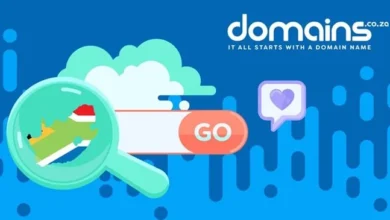
Financial literacy plays a vital role in empowering individuals and communities to make informed financial decisions. South Africa, like many countries, faces challenges regarding financial education and awareness. Starting a financial literacy and coaching service can contribute to bridging this gap and making a positive impact. This article aims to provide a comprehensive guide on how to start financial literacy and coaching services in South Africa, helping individuals gain the knowledge and skills needed for a secure financial future.
- Understand the Landscape: Before launching your financial literacy and coaching services, it’s essential to understand the current financial landscape in South Africa. Familiarize yourself with the financial challenges faced by individuals and communities, such as high debt levels, limited access to banking services, and a lack of basic financial knowledge. Stay updated with relevant legislation, policies, and initiatives aimed at promoting financial inclusion and literacy.
- Identify Your Target Audience: Define your target audience based on their demographics, such as age, income level, and location. Consider working with various groups, including young adults, entrepreneurs, low-income earners, or specific communities. Tailor your services to meet the unique needs of each group, offering workshops, seminars, one-on-one coaching, or online resources.
- Enhance Your Financial Expertise: As a financial literacy and coaching service provider, it is crucial to have a solid foundation of financial knowledge. Acquire relevant qualifications and certifications in finance, economics, or financial planning. Consider pursuing additional courses or obtaining certifications from reputable institutions specializing in financial education. Stay up to date with the latest financial trends, regulations, and investment strategies.
- Develop Engaging and Interactive Content: Create engaging and interactive content to deliver financial education effectively. Develop workshops, webinars, or seminars that cover topics such as budgeting, debt management, saving and investing, retirement planning, and understanding financial products. Utilize visual aids, case studies, real-life examples, and practical exercises to enhance participants’ learning experience. Encourage active participation and provide opportunities for attendees to ask questions and share their financial concerns.
- Establish Strategic Partnerships: Collaborate with relevant organizations, such as community centers, schools, universities, and non-profit organizations, to reach a wider audience. Partner with financial institutions, banks, or credit unions that may be interested in sponsoring or supporting your initiatives. Work closely with government agencies, local municipalities, or community development organizations to align your efforts with existing financial inclusion initiatives.
- Leverage Digital Platforms: Utilize digital platforms to reach a broader audience and extend your services beyond physical locations. Create a user-friendly website or blog where individuals can access educational resources, tools, and calculators. Develop online courses or webinars that can be accessed remotely, catering to those unable to attend in-person sessions. Leverage social media platforms to share valuable financial tips, host live Q&A sessions, and engage with your audience.
- Measure Impact and Seek Feedback: Regularly assess the impact of your financial literacy and coaching services by tracking participants’ progress and success stories. Gather feedback through surveys or testimonials to continuously improve your services. Collaborate with academic institutions or researchers to conduct evaluations and research studies, providing evidence of the effectiveness of your initiatives.
Starting a financial literacy and coaching service in South Africa presents a valuable opportunity to empower individuals and communities with the knowledge and skills needed for financial well-being. By understanding the financial landscape, identifying your target audience, enhancing your financial expertise, developing engaging content, establishing partnerships, leveraging digital platforms, and measuring impact, you can make a meaningful difference in promoting financial literacy and empowering South Africans to build a secure financial future. Your dedication and commitment to improving financial education can contribute to a more economically empowered nation.





